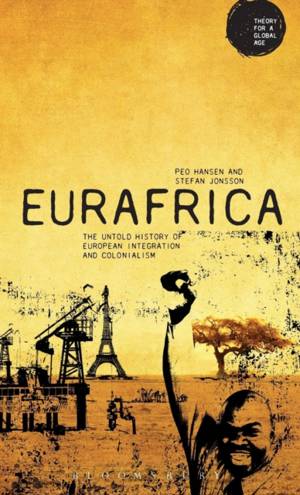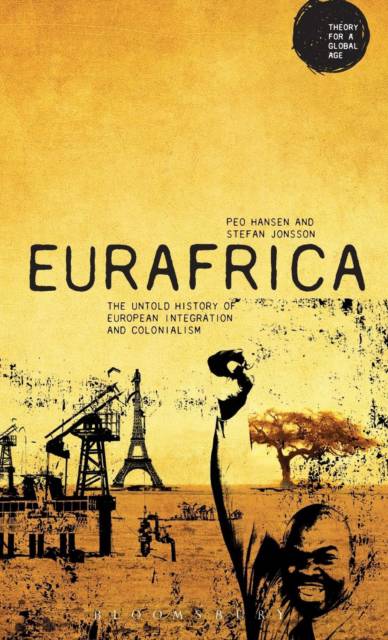
- Afhalen na 1 uur in een winkel met voorraad
- Gratis thuislevering in België vanaf € 30
- Ruim aanbod met 7 miljoen producten
- Afhalen na 1 uur in een winkel met voorraad
- Gratis thuislevering in België vanaf € 30
- Ruim aanbod met 7 miljoen producten
Zoeken
€ 254,45
+ 508 punten
Uitvoering
Omschrijving
In order to think theoretically about our global age it is important to understand how the global has been conceived historically. 'Eurafrica' was an intellectual endeavor and political project that from the 1920s saw Europe's future survival - its continued role in history - as completely bound up with Europe's successful merger with Africa. In its time the concept of Eurafrica was tremendously influential in the process of European integration.
Today the project is largely forgotten, yet the idea continues to influence EU policy towards its African 'partner'. The book will recover a critical conception of the nexus between Europe and Africa - a relationship of significance across the humanities and social sciences. In assessing this historical concept the authors shed light on the process of European integration, African decolonization and the current conflictual relationship between Europe and Africa.Specificaties
Betrokkenen
- Auteur(s):
- Uitgeverij:
Inhoud
- Aantal bladzijden:
- 344
- Taal:
- Engels
- Reeks:
Eigenschappen
- Productcode (EAN):
- 9781780930008
- Verschijningsdatum:
- 18/12/2014
- Uitvoering:
- Hardcover
- Formaat:
- Genaaid
- Afmetingen:
- 138 mm x 224 mm
- Gewicht:
- 571 g

Alleen bij Standaard Boekhandel
+ 508 punten op je klantenkaart van Standaard Boekhandel
Beoordelingen
We publiceren alleen reviews die voldoen aan de voorwaarden voor reviews. Bekijk onze voorwaarden voor reviews.








